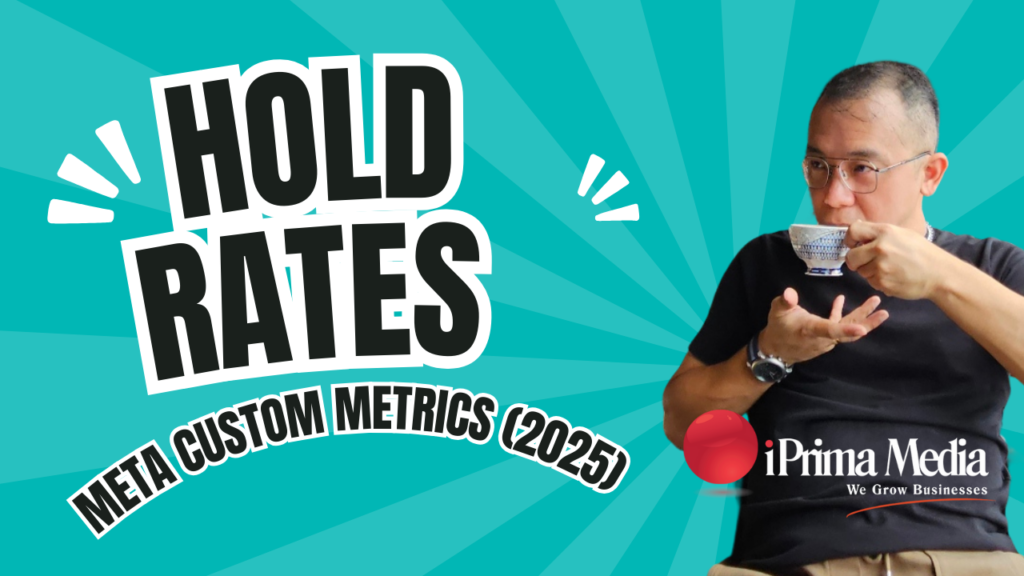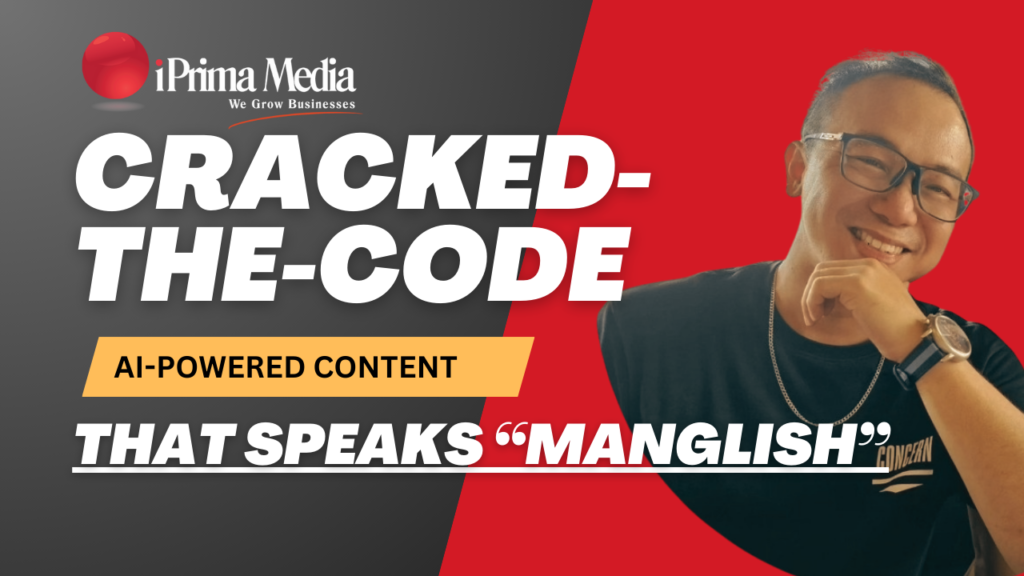Did you know that nearly 10% of businesses in 2024 already utilize AI for SEO? And more companies are planning to implement AI in their content creation and SEO practices. The impact of artificial intelligence (AI) on search engine optimization (SEO) is revolutionary, transforming the way businesses approach digital marketing. By leveraging AI-driven strategies and tools, businesses can optimize their SEO efforts and stay competitive in the evolving digital landscape.
In this article, we will explore the role of AI in SEO and discover how it revolutionizes keyword research, content creation, user experience design, link building, and more. We will also discuss the implications, challenges, and ethical considerations that arise with AI implementation in SEO. By understanding the intersection of AI and SEO and harnessing the power of AI technology, businesses can enhance their SEO performance and achieve success in 2024 and beyond.
The Current Landscape: AI's Growing Role in SEO
The current SEO landscape is witnessing the growing influence of AI in optimizing digital strategies. As businesses strive to stay competitive in the ever-evolving digital marketplace, understanding AI's implications for SEO strategy has become crucial. AI-powered tools have become indispensable for businesses, paving the way for more efficient and effective SEO practices.
Understanding AI's Implications for SEO Strategy
AI has transformed the way businesses approach SEO strategy. By leveraging AI-powered tools, businesses can automate various SEO processes, such as keyword research, content creation, and performance monitoring. This automation enables businesses to save time and resources while optimizing their SEO efforts.
Moreover, AI tools enable automatic semantic keyword identification, revolutionizing content optimization. These tools analyze massive amounts of data to identify the most relevant keywords for businesses to target. By understanding AI's implications for SEO strategy, businesses can create optimized content that resonates with their target audience and improves their search engine rankings.
Statistics: The Integration of AI in Modern SEO Practices
The integration of AI in modern SEO practices is on the rise. Statistics reveal that 58% of companies plan to use AI for content creation and SEO in 2023. This highlights the increasing recognition of AI's potential in transforming SEO strategies and achieving better results.
AI-powered tools offer a wide range of functionalities that enhance SEO practices, including automatic keyword identification, predictive analytics, and real-time monitoring. By embracing AI-driven strategies, businesses can harness the power of data and automation to optimize their SEO performance and stay ahead of the competition.
| Statistics | ||
|---|---|---|
| Percentage of businesses planning to use AI for content creation and SEO in 2024 | 58% | |
| Benefits of AI integration in SEO practices | – Automating SEO processes – Improving keyword research and content optimization – Enhancing performance monitoring – Achieving better search engine rankings | |
| Impact of AI in modern SEO approaches | – Transforming digital strategies – Revolutionizing content creation – Enhancing user experience – Streamlining link building and outreach activities |
How AI Revolutionizes Keyword Research and Content Creation
AI-driven technology has transformed the way businesses approach keyword research and content creation, bringing about enhanced efficiency and effectiveness. With the help of AI tools, businesses can now identify and understand semantic keywords automatically, providing valuable insights into the relationship between keywords and optimizing content accordingly. This revolution in keyword research allows businesses to create content that caters to the diverse needs and preferences of users, ensuring higher engagement and better search engine rankings.

Automatic Semantic Keyword Identification
One of the most significant advancements in keyword research is the automatic identification of semantic keywords through AI-powered tools. These tools analyze the context and meaning behind searches, enabling businesses to uncover related keywords that can improve content relevance and rank higher in search engine results. By harnessing AI's capabilities in semantic keyword identification, businesses can save time and resources that would otherwise be spent on manual keyword research.
Transforming Content Optimization with AI Tools
Another area where AI revolutionizes content creation is optimizing content for search engines. AI tools play a vital role in generating SEO-ranked meta tags, descriptions, and other essential elements of content optimization. By utilizing these tools, businesses can ensure that their content aligns with search engine algorithms, resulting in better visibility and higher rankings. AI-driven content optimization empowers businesses to create informative, engaging, and relevant content that meets both user expectations and search engine guidelines.
Enhancing SEO Performance with AI-Driven User Experience Design
AI-driven user experience design plays a crucial role in optimizing the overall SEO performance of a website. By leveraging the power of artificial intelligence, businesses can create personalized user interactions that lead to enhanced website experiences and improved search engine rankings.
Personalizing User Interactions through AI Analysis
With AI analysis, businesses can gain valuable insights into user behavior and preferences, allowing for the personalization of user interactions. By understanding user needs and tailoring the website experience to meet those needs, businesses can provide relevant and engaging content, leading to increased user satisfaction and higher conversion rates.
The Role of AI in Crafting Interactive Websites
AI plays a pivotal role in crafting interactive websites that engage users and provide customized content based on their preferences. By analyzing user data and utilizing machine learning algorithms, businesses can create dynamic and interactive elements on their websites, such as personalized recommendations, chatbots, and interactive quizzes. These interactive features not only enhance the user experience but also contribute to increased user engagement and improved SEO performance.
Incorporating AI into user experience design is essential for businesses looking to optimize their SEO efforts. By personalizing user interactions and crafting interactive websites, businesses can deliver exceptional user satisfaction, enhance their search engine rankings, and gain a competitive edge in the digital marketplace.
SEO Automation with Artificial Intelligence: A New Era of Efficiency
Artificial Intelligence (AI) has revolutionized SEO practices, paving the way for a new era of efficiency. By harnessing the power of AI, businesses can automate various SEO tasks and processes, leading to significant time and resource savings. Let's explore how SEO automation with artificial intelligence is transforming the digital marketing landscape.
One aspect where AI has made a substantial impact is in the automation of keyword research. AI-powered tools can analyze vast amounts of data and identify relevant keywords that drive organic traffic. This automation saves marketers countless hours, allowing them to focus on other critical aspects of their SEO strategy.
Content creation is another area where AI automation shines. With the help of AI algorithms, businesses can generate high-quality and engaging content that resonates with their target audience. AI-powered content creation tools can generate blog posts, articles, and other forms of content, ensuring that businesses consistently produce valuable and optimized content.
Link building is a crucial component of SEO, and AI automation has simplified this process. AI algorithms can analyze backlink profiles, identify high-quality link opportunities, and even generate personalized outreach campaigns. This not only saves time but also improves the efficiency and effectiveness of link building efforts.
Furthermore, AI automation can streamline performance monitoring, allowing businesses to track their SEO progress more effectively. AI algorithms can monitor search engine rankings, website analytics, and user behavior, providing valuable insights into the success of SEO strategies. These insights enable businesses to make data-driven decisions and optimize their SEO efforts for better results.
In summary, AI automation has ushered in a new era of efficiency in SEO practices. By leveraging the power of artificial intelligence, businesses can automate various SEO tasks, ranging from keyword research to content creation, link building, and performance monitoring. This automation not only saves time and resources but also enhances the overall effectiveness of SEO strategies. Embracing SEO automation with artificial intelligence allows businesses to stay competitive in the ever-evolving digital landscape.

AI-Driven SEO Tactics for Predictive Marketing Insights
At our company, we understand the importance of staying ahead of market changes and consistently delivering relevant and engaging content to our target audience. That is why we embrace AI-driven SEO tactics that provide us with predictive marketing insights. With the help of artificial intelligence, we are able to anticipate user behavior and adapt our SEO strategies accordingly.
Proactive Content Strategy with AI Predictions
By adopting proactive content strategies with AI predictions, we can ensure that our content remains fresh, up-to-date, and aligned with the evolving preferences of our target audience. AI enables us to analyze user data, identify trends, and generate insights that guide our content creation process.
With AI algorithms, we can predict the types of content that will resonate most with our audience, allowing us to tailor our strategies and deliver valuable information that meets their needs. By constantly monitoring market changes and leveraging AI predictions, we can maintain our competitive edge and stay ahead of our competitors.
Embracing Market Changes: The Predictive Power of AI
Market changes happen at a rapid pace, and businesses must be able to adapt quickly to remain successful. AI gives us the predictive power to foresee these changes and adjust our SEO strategies accordingly. By analyzing data, consumer behavior, and industry trends, we can harness the power of AI to anticipate shifts in the market and make informed decisions.
Through AI-driven SEO tactics, we can identify emerging keywords, optimize our website and content, and target the right audience at the right time. This predictive approach allows us to take proactive measures and stay ahead of the competition.
By embracing the predictive power of AI, we can navigate the dynamic market landscape, adapt our SEO strategies, and ensure that our content remains relevant and engaging to our target audience.
How AI Affects SEO: Tailoring Search for Voice and Visual Queries
Artificial Intelligence (AI) has a profound impact on search engine optimization (SEO), especially when it comes to tailoring search for voice and visual queries. As voice search and visual search technologies continue to evolve, it is essential for businesses to optimize their SEO strategies to adapt to these new search methods.
A key aspect of AI's role in SEO is its ability to understand and analyze voice and visual queries. By leveraging AI algorithms, businesses can effectively interpret the nuances of voice commands and visual search inputs. This enables them to provide relevant and accurate search results that cater to the specific intent of users.
To illustrate the importance of AI in tailoring search for voice and visual queries, consider the example of a user asking a voice assistant for recommendations on local restaurants. Using AI, search engines can analyze the user's location, dining preferences, and previous search history to provide personalized and contextually relevant restaurant options.

Similarly, in the case of visual search, AI technology can analyze images and understand their content. This allows search engines to deliver accurate and specific search results based on the visual elements captured in the image. For instance, a user can take a photo of a product they are interested in, and AI-powered search engines can identify the item and provide information about where it can be purchased.
By tailoring search for voice and visual queries, businesses can enhance their SEO performance and reach a broader audience. Voice search and visual search are rapidly gaining popularity, and businesses that adapt their SEO strategies to accommodate these trends will have a competitive edge in the digital marketplace.
Overall, AI's influence on SEO is undeniable, and its ability to tailor search for voice and visual queries opens up new possibilities for businesses to connect with their target audience effectively. As AI continues to advance, businesses must stay up-to-date with the latest AI-driven SEO practices to ensure their content remains visible and accessible to users who rely on voice and visual search.
AI's Role in Streamlining Link Building and Outreach Activities
Link building and outreach activities play a crucial role in the success of SEO strategies. They help businesses establish their online presence, drive organic traffic, and improve search engine rankings. However, managing these activities manually can be time-consuming and challenging.
That's where artificial intelligence (AI) comes in. AI plays a significant role in streamlining link building and outreach activities, making them more efficient and effective. By utilizing AI-driven algorithms, businesses can automate key processes and achieve better results.
AI algorithms can quickly analyze backlink profiles, identifying high-quality links that are valuable for SEO. This automated analysis saves businesses considerable time and effort in identifying suitable link partners.
Furthermore, AI can generate personalized link-building campaigns that drive organic traffic to websites. By leveraging AI's data analysis capabilities, businesses can identify potential link partners and craft tailored outreach messages that maximize collaboration opportunities.
The use of AI tools in link building and outreach activities not only streamlines the process but also enhances the quality of collaborations. AI can help businesses identify relevant and authoritative websites for link building, improving the credibility and authority of their own websites.
Additionally, AI can facilitate personalized collaborations by matching businesses with suitable link partners. By analyzing data on industry relevance, audience demographics, and website performance, AI can generate recommendations for fruitful partnerships.
In summary, AI's role in streamlining link building and outreach activities is invaluable for businesses aiming to boost their SEO performance. By automating processes, identifying high-quality links, and facilitating personalized collaborations, AI enables businesses to establish strong online partnerships and drive organic traffic to their websites.
Navigating the Intersection of AI and SEO with Smart Tools
Navigating the intersection of AI and SEO requires the use of smart tools and platforms. By deploying AI for SEO success through the utilization of specifically-designed tools and platforms, businesses can optimize their digital strategies more effectively. These smart tools enable businesses to automate various SEO processes while leveraging AI-driven optimization techniques.
Deploying AI for SEO Success: Tools and Platforms
Deploying AI tools and platforms is crucial for achieving SEO success in today's digital landscape. These tools provide businesses with the ability to automate SEO processes such as keyword research, content creation, and performance monitoring. Moreover, AI-powered platforms offer valuable insights into search engine algorithms, allowing businesses to make data-driven decisions for their SEO strategies.
Real-time SEO Monitoring Leveraging AI Technology
Real-time SEO monitoring is essential for staying ahead in the competitive digital marketplace. By leveraging AI technology, businesses can gain real-time insights into website performance, keyword rankings, and user behavior. AI-driven tools and platforms enable businesses to monitor SEO metrics and make timely adjustments to their strategies, ensuring optimal visibility and search engine rankings.
Leveraging AI for Improved Search Engine Algorithm Adaptability
As search engine algorithms continue to evolve, businesses must adapt their SEO strategies to stay competitive. This is where AI comes in, playing a crucial role in improving search engine algorithm adaptability. By leveraging AI tools, businesses can effectively keep up with algorithmic changes and make quick adjustments to their SEO strategies.
AI enables businesses to monitor and analyze algorithmic changes in real-time, providing valuable insights to guide SEO efforts. It helps identify patterns and trends in search engine rankings, allowing businesses to optimize their content and website accordingly. With AI as a partner in SEO responsiveness, businesses can stay at the forefront of algorithmic changes and maintain their search engine rankings.
AI offers numerous advantages for search engine algorithm adaptability, including:
- Continuous monitoring of algorithm updates
- Real-time analysis of ranking factors
- Identification of areas for SEO improvement
- Data-driven insights for optimizing content and website
By leveraging AI, businesses can proactively adapt to algorithmic changes and ensure their SEO strategies are effective and up-to-date.
Keeping up with Algorithmic Changes
Algorithmic changes in search engines can significantly impact website rankings and visibility. Failure to keep up with these changes can lead to a decline in search engine performance and missed opportunities. AI tools provide businesses with the agility required to adapt to algorithmic changes quickly.
AI-driven tools can analyze algorithm updates, identify key changes, and provide recommendations for adjusting SEO strategies accordingly. This allows businesses to stay ahead of the curve and maintain a competitive edge in search engine rankings.
AI as a Partner in SEO Responsiveness
SEO responsiveness is crucial for businesses aiming to stay competitive in the ever-evolving digital landscape. AI acts as a powerful partner in SEO responsiveness by enabling businesses to monitor, analyze, and respond effectively to changes in search engine algorithms.
With AI technology, businesses can detect shifts in ranking factors, identify potential SEO gaps, and implement necessary adjustments in real-time. This partnership between AI and SEO ensures that businesses can adapt their strategies based on current trends and maximize their search engine visibility and success.
Summary
Leveraging AI for improved search engine algorithm adaptability is essential for businesses to maintain a strong online presence. AI tools enable businesses to stay up-to-date with algorithmic changes, make necessary adjustments to their SEO strategies, and maximize their search engine rankings.
Artificial Intelligence Impact on SEO: Ethical Considerations and Challenges
The integration of artificial intelligence (AI) in SEO practices brings about ethical considerations and challenges that businesses need to address. As AI algorithms learn from existing data, there is a risk of perpetuating and amplifying biases that may be present in the data. It is crucial for businesses to ensure AI bias is minimized or eliminated to maintain fairness and inclusivity in search engine optimization.
Addressing AI Bias and Data Integrity in SEO
To address AI bias in SEO, businesses should implement measures to identify and correct biases in the data that AI algorithms learn from. This can involve conducting regular audits of the training data to check for potential biases and taking steps to address any imbalances. Additionally, businesses can utilize diverse and representative datasets to train AI models, ensuring fairness in search results and content recommendations.
Data integrity is another important aspect to consider in AI-driven SEO. The quality and accuracy of the data used to train AI algorithms directly impact the effectiveness of SEO strategies. Businesses should prioritize data integrity by ensuring data is sourced from reliable and trustworthy sources, and by implementing robust data validation and verification processes.
Understanding the Complexity and Cost of AI Implementation in SEO
Implementing AI in SEO strategies requires careful consideration of the complexity and cost involved. Businesses need to invest in talent with expertise in AI, ensuring they have the necessary skills to develop and implement AI-driven SEO strategies effectively. Moreover, technological infrastructure needs to be in place to support the integration of AI tools and systems.
It is also essential to account for the ongoing cost of AI implementation in SEO. This includes not only the initial investment in acquiring AI technologies but also the continuous expenses associated with training and development, system upgrades, and maintenance. By understanding the complexity and cost of AI implementation, businesses can make informed decisions and allocate appropriate resources to ensure successful integration.
Recommended AI SEO Tools
There are several AI SEO tools available that can enhance the effectiveness of SEO strategies. Some recommended AI SEO tools include Jasper AI, Autoblogging, Koala, SEO.ai, Perplexity AI, and ChatGPT. These tools offer features such as AI content generation, SERP analysis, keyword research, and performance monitoring. By utilizing these AI SEO tools, businesses can optimize their SEO efforts and drive better results.
Incorporating AI technology into SEO strategies can provide businesses with valuable insights and automate various tasks, ultimately improving search engine rankings and driving organic traffic. With the help of these recommended AI SEO tools, businesses can harness the power of artificial intelligence and stay ahead in the digital marketplace.
Conclusion
The impact of artificial intelligence (AI) on SEO is truly transformative. By embracing AI-driven strategies and tools, businesses can revolutionize their SEO practices and stay ahead in today's ever-evolving digital landscape. AI offers numerous benefits for SEO, including improving keyword research and content creation, enhancing user experience, and streamlining link building activities.
However, it is important for businesses to navigate ethical considerations and challenges associated with AI implementation in SEO. Addressing AI bias and ensuring data integrity are crucial steps to maintain transparency and fairness in search results. Additionally, understanding the complexity and cost of integrating AI into SEO strategies is essential for successful implementation.
By leveraging AI's power in SEO, businesses can enhance efficiency, improve search engine rankings, and gain a competitive edge in the digital marketplace. From automating SEO tasks to predicting user behavior and personalizing interactions, AI-driven tactics provide businesses with valuable insights and opportunities for success.
As AI continues to evolve, it becomes increasingly essential for businesses to adapt their SEO strategies to leverage AI's capabilities. By embracing AI as a powerful ally, businesses can unlock new possibilities and achieve SEO success in this fast-paced digital era.
FAQ
How does AI affect SEO?
AI plays a significant role in optimizing SEO strategies by automating tasks, improving keyword research, enhancing user experience design, and streamlining link building and outreach activities.
What are the implications of AI on SEO strategy?
AI revolutionizes SEO strategy by transforming keyword research, content optimization, and user experience design. It also enables businesses to stay ahead of market changes through predictive marketing insights.
How can AI revolutionize keyword research and content creation?
By leveraging AI tools, businesses can automatically identify semantic keywords, gain insights into keyword relationships, and create optimized content that meets user needs and preferences.
What is the role of AI in enhancing SEO performance through user experience design?
AI analyzes user interactions and preferences to personalize website experiences, leading to improved SEO performance. It also helps businesses craft interactive websites that engage users and deliver customized content.
How does AI automation contribute to SEO efficiency?
AI automation streamlines various SEO tasks, such as keyword research, content creation, link building, and performance monitoring. This automation saves time and resources, leading to more efficient SEO practices.
How can businesses leverage AI-driven tactics for predictive marketing insights?
By adopting proactive content strategies with AI predictions, businesses can anticipate user behavior, create relevant content, and adapt their SEO strategies to changing market trends.
How does AI affect SEO in terms of tailoring search for voice and visual queries?
AI enables businesses to understand and analyze voice and visual queries, allowing for relevant and accurate search results. This tailoring of search enhances SEO performance and expands the reach of businesses.
How does AI streamline link building and outreach activities in SEO?
AI-driven algorithms quickly analyze backlink profiles, identify high-quality links, and generate link-building campaigns that drive organic traffic. AI tools also help identify potential link partners and facilitate personalized collaborations.
What are the smart tools and platforms that help navigate the intersection of AI and SEO?
Deploying AI for SEO success requires utilizing tools and platforms such as Jasper AI, Surfer SEO, Byword, SEO.ai, Perplexity AI, and ChatGPT. These tools automate SEO processes, provide real-time monitoring, and offer valuable insights into search engine algorithms.
How does AI help in adapting SEO strategies to algorithmic changes?
AI tools enable businesses to monitor and analyze algorithmic changes, allowing for quick adjustments to SEO strategies. By leveraging AI as a partner in SEO responsiveness, businesses can stay ahead of algorithmic changes and maintain search engine rankings.
What are some ethical considerations and challenges related to AI's impact on SEO?
Businesses must address AI bias and ensure data integrity in their SEO practices. Additionally, the complexity and cost of implementing AI in SEO strategies should be carefully considered to ensure responsible and effective use.
What are some recommended AI SEO tools?
Some recommended AI SEO tools include Jasper AI, Surfer SEO, Byword, SEO.ai, Perplexity AI, and ChatGPT. These tools offer features like AI content generation, SERP analysis, keyword research, and performance monitoring.











